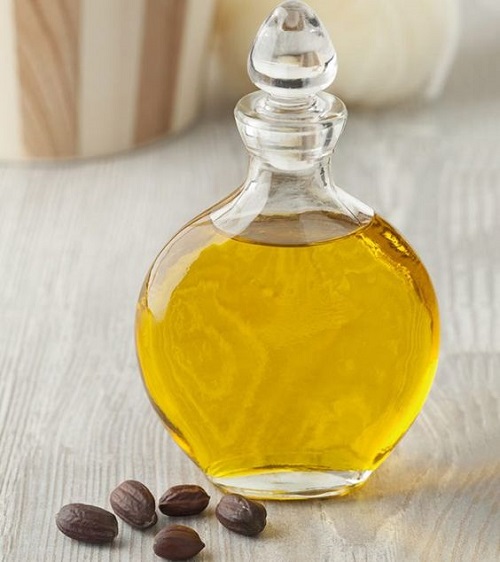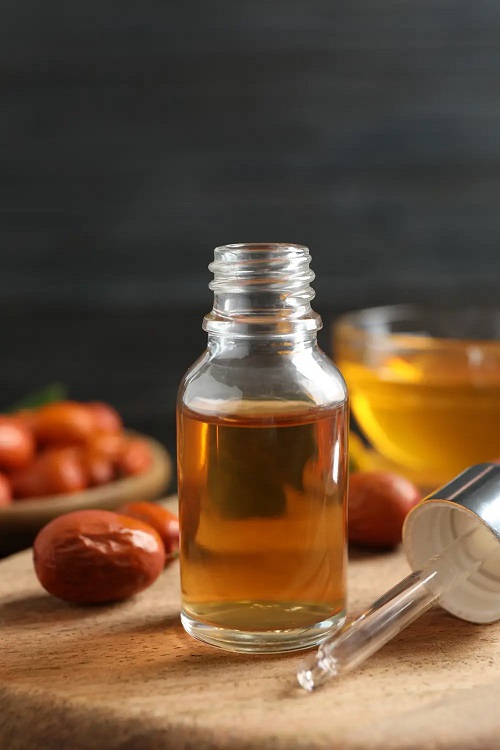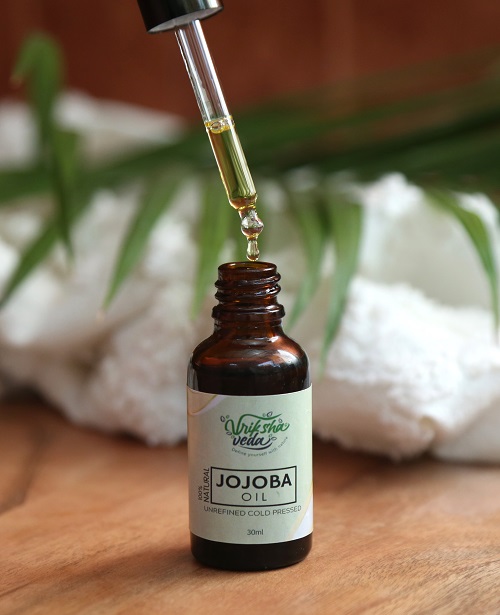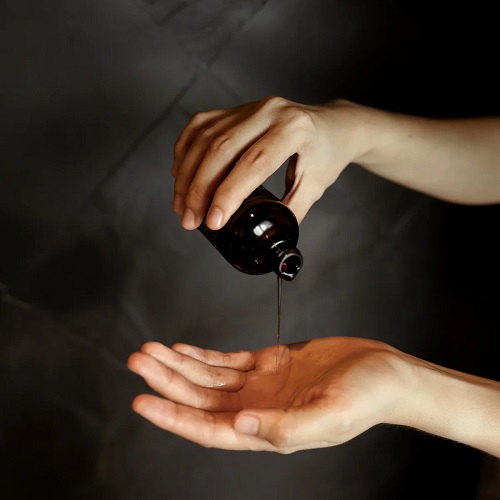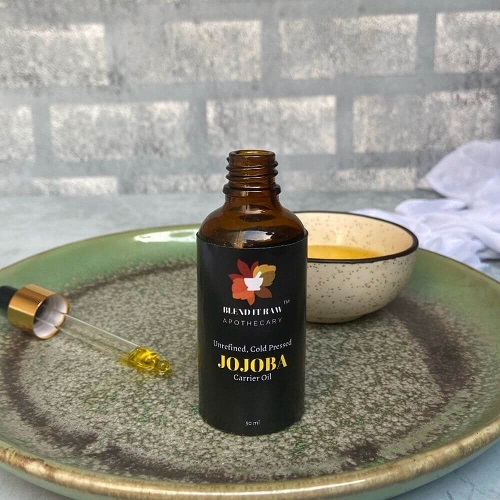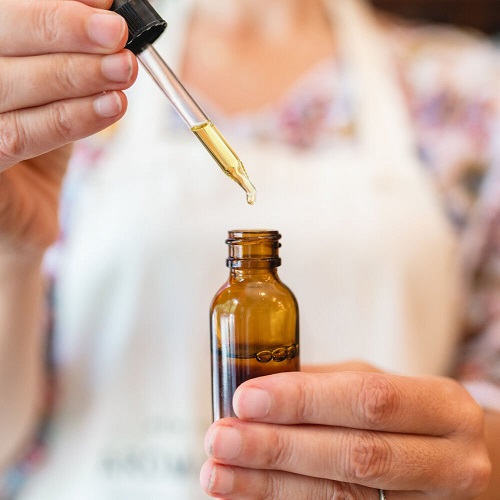Does Jojoba Oil Expire? Stay tuned for a wide insight into its expiration, efficacy, and practical storage tips!
Have you ever wondered Does Jojoba Oil Expire? This natural wonder, a staple in skincare and hair care, might just surprise you with its shelf life. JLet’s explore the topic in detail!
Does Tea Tree Oil Expire? Click Here To Know!
What Is Jojoba Oil?
Jojoba oil is a natural substance extracted from the seeds of the jojoba plant, scientifically known as Simmondsia chinensis. Native to North America, particularly the arid regions of the Southwestern United States and Northern Mexico, this plant produces seeds rich in a waxy substance. When processed, this wax takes on the form of a clear, golden oil, known for its remarkable similarity to the sebum produced by human skin.
Jojoba oil is a versatile oil, used not only for its moisturizing benefits but also for its ability to balance natural oil production, making it suitable for a variety of skin types. Rich in vitamins and minerals, including vitamin E and B-complex, jojoba oil is also known for its antioxidant and anti-inflammatory properties, making it a popular ingredient in a wide range of cosmetic and personal care products.
What Does Jojoba Oil Consist Of?
- Wax Esters: The most distinctive component, resembling the natural sebum of human skin, providing excellent moisturizing properties and stability.
- Fatty Acids and Fatty Alcohols: Predominantly made up of long-chain fatty acids and alcohols, which enhance its moisturizing and emollient qualities.
- Eicosenoic Acid: A monounsaturated omega-9 fatty acid, known for its non-comedogenic (non-pore clogging) properties, making it suitable for all skin types.
- Erucic Acid: This contributes to the oil’s texture and spreadability on the skin and hair.
- Oleic Acid: A common monounsaturated fat that offers moisturizing and skin-softening benefits.
- Vitamin E: Jojoba oil is a natural source of Vitamin E, an antioxidant that helps protect the skin from oxidative stress.
- Minerals: It contains small amounts of minerals like copper and zinc, which can benefit skin health.
- Phytosterols: These plant-based compounds have anti-inflammatory properties, aiding in skin repair and rejuvenation.
Does Jojoba Oil Expire?
Jojoba oil does have an expiration date, but it boasts a remarkably long shelf life of 2-3 years, often spanning to 5 years, when stored under optimal conditions.
The extended shelf life of jojoba oil is primarily due to its unique composition. Unlike typical plant oils comprised of triglycerides, jojoba oil is primarily made up of wax esters. These wax esters closely resemble human skin’s natural sebum in structure and function, thereby enhancing the oil’s inherent stability and making it less prone to oxidation and rancidity.
However, exposure to factors like exposure to heat, light, and air shows signs of rancidity and leads to oil degradation over time.
How Does Jojoba Oil Go Bad?
Jojoba oil, known for its stability and long shelf life, can still go bad under certain conditions. Here are the factors that contribute to the deterioration of jojoba oil:
1. Exposure to Air
When jojoba oil comes into contact with air, oxidation occurs. This chemical reaction involves the oil reacting with oxygen, leading to a change in its chemical structure. Over time, oxidation can result in the oil becoming thicker, changing color, and developing an off smell.
This process diminishes the oil’s therapeutic properties and can make it less effective for skincare or haircare.
2. High Temperatures
Heat can be detrimental to jojoba oil’s quality. Elevated temperatures speed up the oxidation process and can also break down the oil’s natural compounds. This breakdown not only reduces the efficacy of the oil but can also lead to the formation of potentially harmful byproducts, which can be allergic to those with sensitive skin.
3. Extended Exposure to Light
Light, especially ultraviolet (UV) light, can adversely affect jojoba oil. UV rays can initiate photo-oxidation, a process similar to oxidation but triggered by light. This can lead to the degradation of the oil’s natural components, altering its consistency, color, and efficacy.
4. Moisture Contamination
If water or any form of moisture gets into the jojoba oil, it can create an environment conducive to microbial growth. Bacteria and mold need water to thrive, and their presence can spoil the oil, making it unsafe to use.
How to Tell if Jojoba Oil is Expired?
To determine if jojoba oil has expired, you can look for several telltale signs. Here are key indicators:
- Change in Color: Fresh jojoba oil typically has a clear, golden appearance. If the oil turns dark or cloudy, it may indicate spoilage.
- Alteration in Texture: Jojoba oil should have a smooth, non-sticky texture. If it becomes thick, viscous, or develops particles, this could be a sign of degradation.
- Off Smell: One of the most noticeable signs of expired jojoba oil is a change in its scent. Fresh jojoba oil has a faint, nutty aroma. A rancid or sour smell indicates that the oil has gone bad.
- Irritation Upon Application: If the oil causes irritation, redness, or discomfort when applied to the skin, it might be expired. Fresh jojoba oil should be gentle and soothing.
- Change in Efficacy: If you notice that the oil is no longer providing the same benefits, such as moisturizing or soothing the skin, it could be a sign that it has lost its potency.
- Presence of Mold or Bacteria: Any signs of mold or bacterial growth, such as a slimy texture or visible spots, mean the oil should not be used.
Storage Tips For A Long Term Use
- Store jojoba oil away from direct sunlight and heat sources. A cool, dark cupboard or drawer is ideal to prevent heat and light from accelerating degradation.
- If not already packaged in one, transfer jojoba oil to an amber glass bottle. The dark color of the bottle helps block harmful UV rays, protecting the oil from light-induced damage.
- After each use, make sure to tighten the cap securely. This minimizes the oil’s exposure to air, reducing the risk of oxidation.
- Keep the bottle away from water or moisture to prevent bacterial and mold growth. Ensure your hands and any tools used to dispense the oil are dry.
- Store the oil in an environment with stable temperatures. Fluctuations in temperature can affect the oil’s composition and shelf life.
- Mark the bottle with the date of purchase or when you opened it. This helps track how old the oil is and monitor its shelf life.
- Do not mix old and new batches of oil, as this can introduce contaminants or affect the overall quality.
Does Jojoba Oil Expire—Wrap Up
In conclusion, while jojoba oil is renowned for its long shelf life and stability, it is important to recognize that it does indeed expire. The unique composition of jojoba oil, rich in wax esters, grants it a longer lifespan than many other natural oils, but it is not immune to eventual degradation.
Regular checks for changes in color, texture, and scent are crucial to ensure the oil’s efficacy and safety. Understanding and respecting the natural limits of jojoba oil’s longevity is key to harnessing its full potential in skincare and haircare routines.
Does Bio Oil Expire? Get Answers Of All Your Questions Here!
FAQs
1. What Is Jojoba Oil Used For?
Jojoba oil serves a versatile role in skincare and haircare routines. It hydrates skin, balances oil production, conditions hair, and is often used as a carrier oil in aromatherapy.
2. How Long Does Jojoba Oil Last?
Typically, jojoba oil can last from two to five years if stored properly. Its longevity is due to its unique chemical composition, which is more resistant to rancidity compared to other natural oils.
3. Can Jojoba Oil Go Bad?
Yes, jojoba oil can go bad. Factors like exposure to air, light, heat, and moisture can lead to its degradation. Signs of spoilage include changes in color, texture, and smell.
4. How Should I Store Jojoba Oil?
Store jojoba oil in a cool, dark place, ideally in an amber glass bottle to protect it from light. Ensure the cap is tightly sealed to minimize air exposure and avoid moisture contamination.
5. Can Expired Jojoba Oil Be Harmful?
Using expired jojoba oil can be harmful as it may cause skin irritation or allergic reactions. It’s important to check for signs of spoilage before use.
6. Is Jojoba Oil Suitable For All Skin Types?
Jojoba oil is generally suitable for all skin types, including oily and acne-prone skin, due to its non-comedogenic properties. It mimics the skin’s natural oils, making it a gentle choice for skin care.

